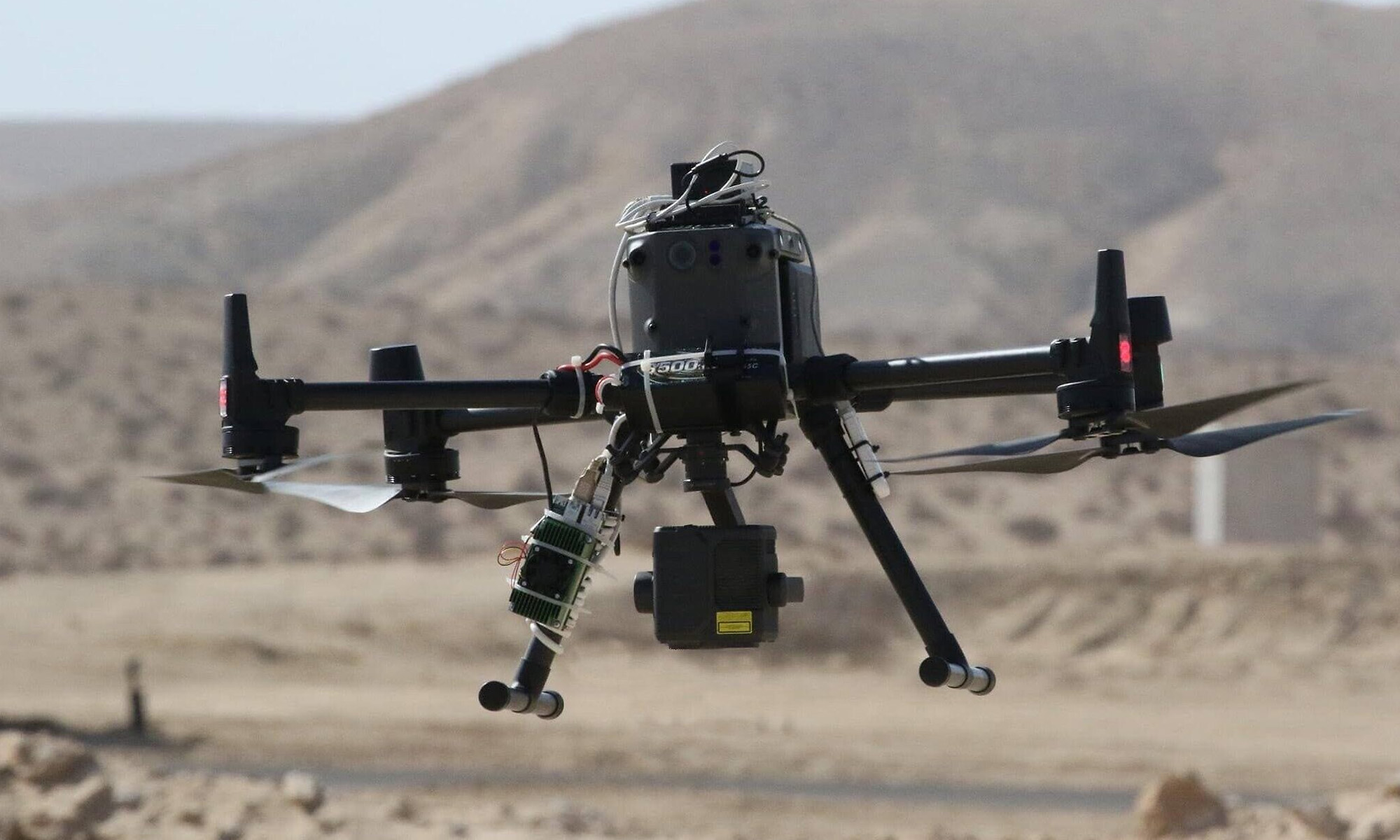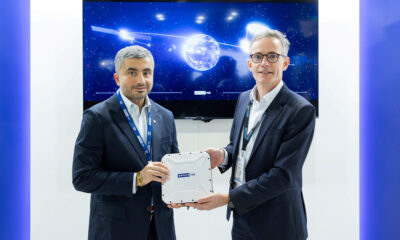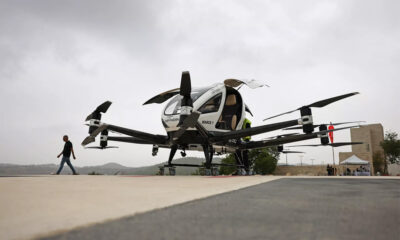News
Sightec Completes First Drone Delivery Without GPS

Some of the world’s largest retailers and e-commerce companies are actively exploring the potential of drones to deliver goods across short to medium distances. Now, Israeli startup Sightec has successfully completed its first drone delivery without GPS.
Instead of location signals provided by satellites, the drone relies on a software solution combining computer vision with artificial intelligence technologies, called NaviSight, to autonomously get to its destination.
NaviSight is compatible with all camera-equipped off-the-shelf drones. With the help of advanced video processing, the software essentially transforms the camera into a smart sensor, allowing the drone to understand its surroundings and identify its location in real-time.
“We give drones the ability to get from point A to point B safely without the need for GPS signals,” said Roy Shmuel, the CEO of Sightec. “There is no available solution today for players globally,” he added.
The test was part of a pilot program operated by Israel’s Ministry of Transport (MOT), Ayalon Highways, the Civil Aviation Authority of Israel (CAAI), and the Israel Innovation Authority. The goal of the program is to test and demonstrate the viability of autonomous drones in managed airspace.
During the test, Sightec successfully navigated the drone on five pre-determined routes near the southern city of Yeruham. “The drone completed each route safely, from take-off to full landing, over desert and construction sites,” said Shmuel.
Also Read: Apple Likely To Release 8K VR Headset In 2022
Not depending on GPS for navigation is important because GPS satellites can malfunction, and the signals transmitted by them can be disrupted by malicious hackers. Without an alternative navigation method, it would be safe to use drones for deliveries and other purposes in populated areas because they could lose signal and endanger people, buildings, and vehicles.
Shmuel also said that the test is an important step toward the legalization of drone delivery operations in Israel and other regions. However, more test flights still need to be conducted in other parts of the country before the technology is ready for prime time.
News
Alienware Just Announced Six New Gaming Monitors
The new models include three QD-OLED and three budget-friendly QHD options, expanding the company’s lineup for all gamers.

Alienware has just updated its gaming monitor lineup with six new additions, including the highly anticipated Alienware 27 4K QD-OLED Monitor. The latest wave of releases is set to reach more gamers than ever, offering high-end QD-OLED displays alongside more budget-friendly options.
The latest displays clearly show that the company is doubling down on QD-OLED with three new models sporting the technology. A redesigned Alienware 34 Ultra-Wide QD-OLED Monitor is also making a return, further refining what is already a fan-favorite display.
A Unified Design: The AW30 Aesthetic
All six monitors feature Alienware’s new AW30 design language, first introduced at CES. The AW30 aesthetic brings a futuristic, minimalist look that unites the entire lineup under a cohesive visual identity.
Pushing QD-OLED Even Further
The refreshed Alienware 34 Ultra-Wide QD-OLED Monitor (AW3425DW) builds on its predecessor’s success with a 240Hz refresh rate (up from 175Hz) and HDMI 2.1 FRL support. It also gains G-SYNC Compatible certification alongside AMD FreeSync Premium Pro and VESA AdaptiveSync, ensuring ultra-smooth performance. With a WQHD (3440×1440) resolution and an 1800R curve, this display enhances immersion for both gaming and cinematic experiences.
For those who crave speed, the Alienware 27 280Hz QD-OLED Monitor (AW2725D) pairs a high refresh rate with QHD resolution, balancing sharp visuals with ultra-smooth gameplay. Meanwhile, the Alienware 27 4K QD-OLED Monitor (AW2725Q) delivers stunning clarity with an industry-leading pixel density of 166 PPI, making it the sharpest OLED or QD-OLED monitor available.
Also Read: Infinite Reality Acquires Napster In $207 Million Deal
Worried about OLED burn-in? Alienware’s entire QD-OLED lineup comes with a three-year limited warranty covering burn-in concerns, offering peace of mind for gamers investing in these high-end displays.
Bringing QHD To A Wider Audience
Alongside QD-OLED, Alienware is also releasing three new QHD gaming monitors aimed at more price-conscious gamers. The Alienware 34 Gaming Monitor (AW3425DWM), Alienware 32 Gaming Monitor (AW3225DM), and Alienware 27 Gaming Monitor (AW2725DM) provide a range of sizes and formats to suit different preferences:
- The Alienware 34 Gaming Monitor (AW3425DWM): An ultrawide (WQHD) option for a panoramic, immersive experience.
- The Alienware 32 Gaming Monitor (AW3225DM): A standard 16:9 panel for a traditional but expansive desktop setup.
- The Alienware 27 Gaming Monitor (AW2725DM): A 27” display offering the same performance in a more compact form factor.
All three gaming monitors feature a fast 180 Hz refresh rate, a 1ms gray-to-gray response time, and support for NVIDIA G-SYNC, AMD FreeSync, and VESA AdaptiveSync to eliminate screen tearing. Additionally, with 95% DCI-P3 color coverage and VESA DisplayHDR400 certification, these displays deliver vibrant colors and high dynamic range for lifelike visuals.
-

 News3 weeks ago
News3 weeks agoSpace42 & Cobham Satcom Launch New Satellite Broadband Terminal
-

 News3 weeks ago
News3 weeks agoYasmina Smart Speakers Now Feature Ramadan-Specific Content
-

 News3 weeks ago
News3 weeks agoRipple Gains DFSA License To Offer Crypto Payments In Dubai
-

 News2 weeks ago
News2 weeks agoAre You Ready For Hong Kong’s InnoEX & Electronics Fair?



















